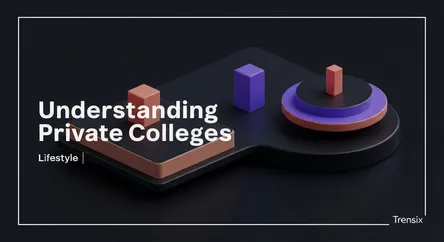Lifestyle
Understanding Private Colleges

Explore what private colleges are, why they're a popular choice, and how they impact students' academic and financial futures.
What is it?
A private college or university is an independent institution of higher education that does not receive its primary funding from the government. Instead, it is funded through student tuition, fees, endowments, and private donations from alumni and other benefactors. This financial independence allows them greater autonomy in their curriculum, governance, and admissions standards compared to public, state-funded institutions. They can range from large research universities to small liberal arts colleges, and may have religious affiliations or specialized academic focuses.
Why is it trending?
Private colleges consistently trend due to their perceived prestige, strong alumni networks, and the promise of a more personalized educational experience. Smaller class sizes often lead to closer relationships between students and faculty, fostering mentorship opportunities. Despite higher 'sticker price' tuition, many private institutions have large endowments that enable them to offer generous financial aid packages, sometimes making them more affordable than public options for certain families. The highly competitive admissions process for elite private schools also keeps them in the cultural spotlight.
How does it affect people?
Choosing a private college has significant financial, academic, and social implications. For students and families, it often means navigating a complex financial aid process and potentially taking on substantial student loan debt. Academically, students may benefit from specialized programs and access to unique research opportunities. Socially, the tight-knit campus communities can create strong, lifelong networks that prove invaluable for career advancement. The decision represents a major investment in one's future, shaping both intellectual growth and professional pathways long after graduation.